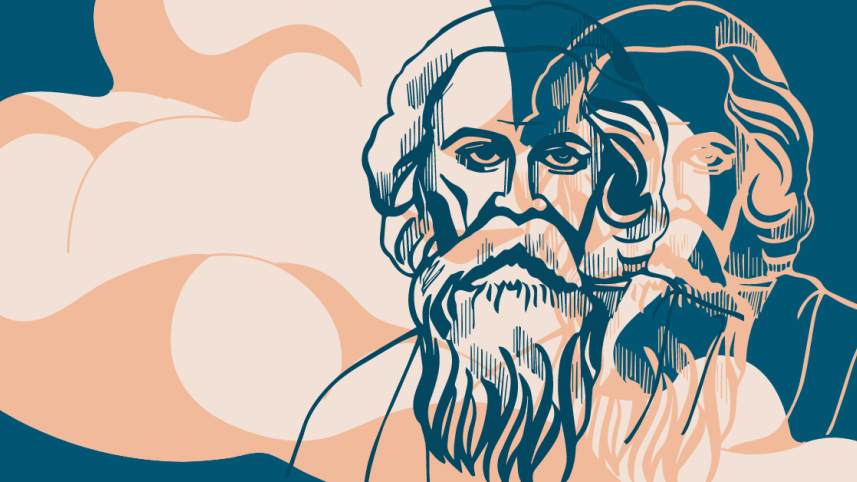Tagore, the climate crisis, and compassionate development

When I am in Dhaka, the likelihood of climate action feels quite distant. The degradation and punishment of green or undeveloped space is visible everywhere. There's been a boom in single-use items and disposable-useless things available in shops and stalls. And it seems like the surge in consumption is outdoing concerns about the environment. In the West, people are starting to alter their habits, and the ideas of climate change sensitivity and reducing consumption are in fashion; Gen Z are all signing up – whether it is out of principle or social pressure, that is hard to know (and perhaps not important).
I understand that people in the UK have larger average carbon footprints than people in Bangladesh, and that the UK still produces copious amounts of waste that is hefted onto boats and booted in the direction of South and Southeast Asia. But that doesn't justify emerging economies doing the same. Just because the West has had its chance to destroy the human race, does that mean that the rest of the world should do so too?
Rabindranath Tagore saw World War I as the West literally turning its guns on itself, using its very worst traits to cannibalise itself. All the greed and commercialisation, the efficiency ethic were being turned inwards in fratricidal and brutal mechanised warfare. Tagore argued that the East should never simply ape the West. While this might bring development, it would also bring with it all the ugly, inhumane and destructive forces of modern, atheistic capitalism.
Does the same argument not apply with the climate crisis? If the UK or the US has proven how not to do things, then is it still okay for Bangladesh to do it anyway, arguing that it is only fair for it to follow the same development path as the West did before?
To me, this seems a broken moral logic. This is equivalent to an eye for an eye; since you have committed an evil, so can I. I think that loss and damage payments are necessary and should be used to fund different development pathways for developing markets, but I don't think the argument that Bangladesh should be allowed to consume coal since the UK did so before is any kind of a morally acceptable approach.
In Bangladesh today, I think that something has to happen urgently to prevent the irrepressible, bloodied and gnashing teeth of the market from turning the country into a large, barren, concrete housing complex.
I think that, just as Tagore said a hundred years ago, this could be achieved not by copying the West, but rather by finding a new, moral and distinct approach to national development, where the market is not supreme. This may sound like the silly and idle chatter of someone who already benefits from the material trappings of modern Western leisure, healthcare and services. But this is precisely the problem: the focus on the immediate and the material as the primary indicators of development – bigger markets, more wealth, more things.
Of course, there are great benefits to Western development, but simply repeating what went before will store up even bigger climate problems in the future. And in doing so, we will fail, as humanity, to engage with the complex moral questions raised by the most recent age of Western ascendancy. Is freedom and individual independence just an enormous, vaunted selfishness? Should we accept the total power of the market, the primacy of efficiency and profit? Are we suffering from the death of strong, communal spiritual movements?
Perhaps the crises we face can inspire us to pursue a more humane and compassionate development. The opportunity is, as Tagore wrote, to "change the aspects of modern civilisation, infusing life in it where it is a machine, substituting the human heart for cold expediency, not caring so much for power and success as for harmonious and living growth, for truth and beauty" (Tagore, 1916).
Patrick Mostyn is programmes partnerships manager for Asia at Brac.



 For all latest news, follow The Daily Star's Google News channel.
For all latest news, follow The Daily Star's Google News channel. 


Comments